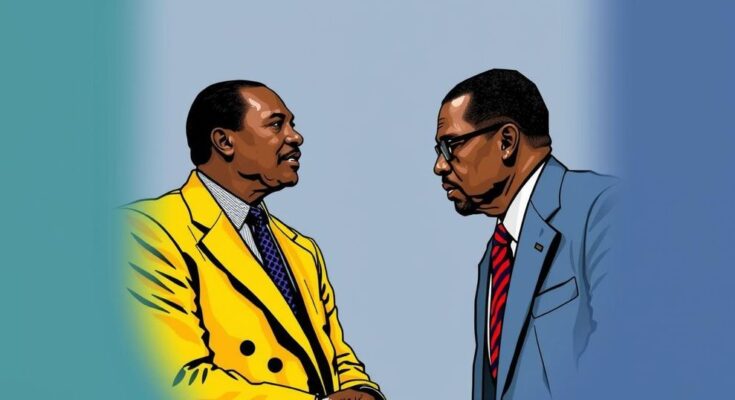The US government criticized the handling of Ugandan opposition leader Kizza Besigye’s detention in Kenya and his subsequent transfer to Uganda. Assistant Secretary Molly Phee voiced concerns regarding the legality and jurisdiction of the charges against Besigye, who faces accusations of illegal firearms possession in a military court. The Kenyan government denied involvement in his abduction, which gained international attention following his wife’s public appeals for his release.
The United States government has explicitly expressed its discontent regarding the contentious extradition of Ugandan opposition leader Kizza Besigye and his aide, Obeid Lutale, following their detention in Kenya. Molly Phee, Assistant Secretary for the Bureau of African Affairs, raised significant concerns about their apprehension and subsequent transfer to Uganda. Besigye, reportedly captured in Nairobi, now confronts charges of illegal firearms possession in Uganda’s military court, raising complex jurisdictional issues about the legality of these charges given their origin.
Prosecutors allege that Besigye collaborated internationally across cities such as Nairobi, Geneva, and Athens with the intention of destabilizing President Museveni’s administration. However, Besigye’s legal team is challenging the jurisdiction of Uganda’s military court over alleged offenses purportedly committed outside its borders. The ambiguity surrounding the law infractions, particularly concerning firearms possession, further complicates the legal landscape of this case.
The involvement of the US State Department highlights the diplomatic ramifications of the case. The Bureau of African Affairs, formed in 1958, plays a crucial role in advising the Secretary of State on matters relating to Sub-Saharan Africa. In her statement, Assistant Secretary Phee underscored the essential need for transparency and legal safeguards for the detained individuals. In response to the controversy, the Kenyan government has dismissed allegations of its participation in Besigye’s abduction. Foreign Affairs Principal Secretary Korir Sing’Oei asserted that Kenyan authorities had no prior knowledge of Besigye’s travel plans.
The incident gained international visibility after Besigye’s spouse publicly sought his release following his disappearance on November 16, while he was in Nairobi for Martha Karua’s book launch. Subsequently, he appeared in a Ugandan court four days post-abduction facing serious military court charges.
The case involving Kizza Besigye, a prominent Ugandan opposition figure, raises substantial legal and diplomatic concerns, particularly surrounding cross-border detentions and the subsequent handling of legal cases. Besigye’s situation became further complicated by his ties to prominent political figures, including his wife, Winnie Byanyima, who holds a significant position within USAID in Kenya. This context is critical, as it reflects ongoing tensions within Uganda regarding political opposition and governance under President Yoweri Museveni’s regime.
The case of Kizza Besigye illustrates the complexities of international law and politics, particularly in the realm of opposition politics in Uganda. The US government’s stance signifies the broader implications of the situation and the critical need for adherence to legal processes. With Besigye facing daunting charges in a military court and questions over the legality of his detention, this case is poised to attract further scrutiny from international observers and human rights advocates.
Original Source: www.mwakilishi.com




